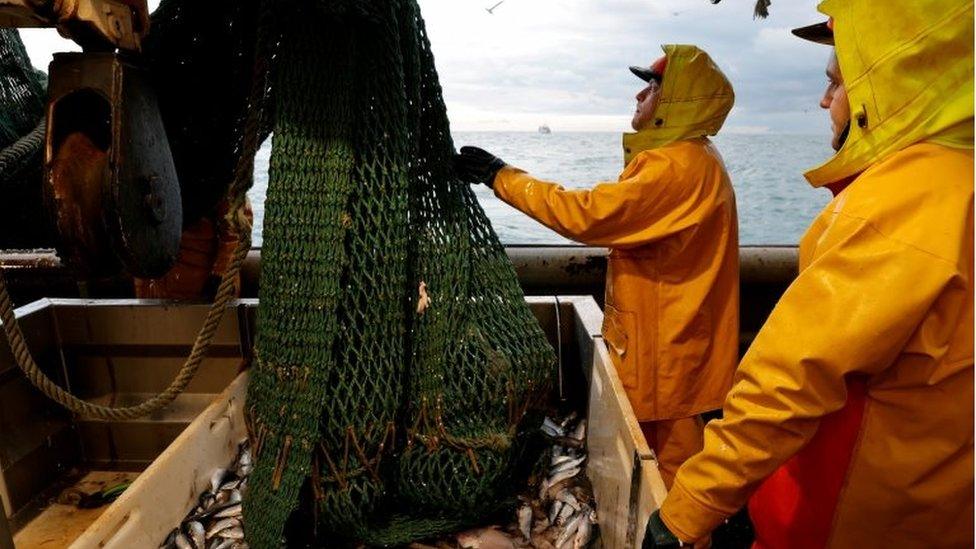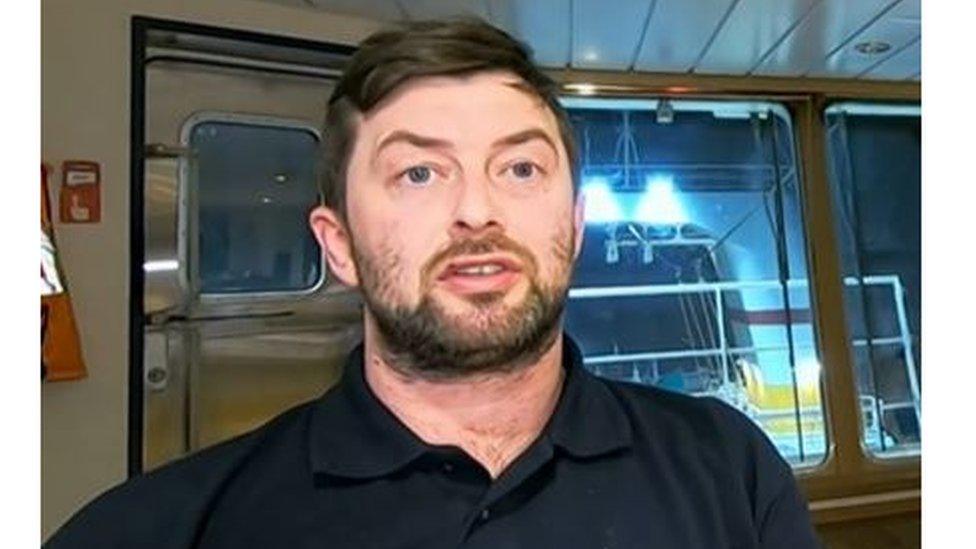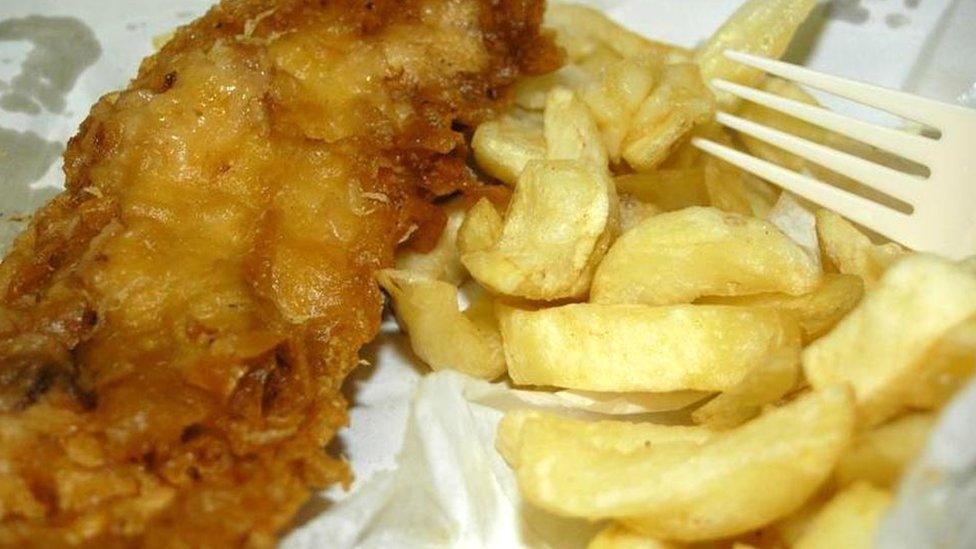Brexit: Anger over government's failure to get Norway fishing deal
- Published
- comments

Fishing crews have been "disastrously let down" by the government's failure to reach a deal with Norway, UK Fisheries chief executive has said.
UK fleets will not have access to Norway's sub-Arctic seas, following the breakdown of UK-Norway negotiations.
One trawler, which catches 10% of fish sold in chip shops, will be tied up for a year following the collapse in talks.
The government said it had offered a "fair deal" but the two sides were "too far apart" to agree a deal this year.
Labour leader Sir Keir Starmer said fishing communities had been "betrayed by the prime minister".
The UK's departure from the EU means it is no longer part of the European Common Fisheries Policy and instead negotiates with Norway directly over fishing catches.


The UK and Norway have a basic post-Brexit agreement on fishing, but annual negotiations are still needed to pin down detailed numbers.
Those negotiations are meant to conclude by the beginning of each year, but the timing of the EU-UK trade deal in December 2020 had a knock-on effect that meant everything was delayed.
The failure to reach a deal means Norwegian vessels will also lose access to UK waters in 2021. But one of the main species they catch is blue whiting, and a lot of that is caught in the first couple of months of the year which have already gone.
UK vessels, on the other hand, fish throughout the year for cod.
And as warmer sea temperatures push cod stocks further north, they cannot replace the cod they have been catching in Norwegian waters by fishing in UK waters instead.
Many people in the fishing industry felt let down by the EU-UK trade deal, but that was about its future potential.
"This is actually a loss of real fishing opportunities," says Barrie Deas of the National Federation of Fishermen's Organisations, "and in that sense we've gone backwards".
Big Scottish fishing firms will be able to catch more mackerel because of the absence of Norwegian vessels in UK waters, but most of the rest of the industry will be bitterly disappointed.
The government will argue that it had to stick to its guns in a tough negotiation, and there was always likely to be some upheaval as a result of the UK exit from the Common Fisheries Policy.
It changes the UK relationship with big fishing countries like Norway, as well as with the EU itself.

Andrew Crook - president of the National Federation of Fish Friers - warned that it could increase the price of fish and chips.
"We rely on having some domestic catch to keep the market stable and any lack of competition is going to have an impact on prices," the fish and chip owner said.
"We are already seeing large increases on almost all of our supplies and we fear this will continue."
'Absolutely devastating'
Speaking to BBC Radio 4, Jane Sandell chief executive of UK Fisheries, said the failure to reach an agreement would mean her firm having only 40% of the fishing opportunities of previous years.
Her Hull-based company employs approximately 100 crew and Ms Sandell said the news would be "absolutely devastating" for those workers and their families.
"It means so much in this area to our history and our culture... we are in total shock, we never believed this would actually happen."
She said the lack of a deal would mean their Kirkella trawler - which catches around 10% of all the fish sold in the UK chip shops - would be "tied up" for a year.
Hull-based super-trawler Kirkella has an on-board fish factory and gym for the crew.
She also criticised the government for failing "to deliver on all of the deals we previously had through the EU with third countries".
"So with the Faroes and Norway, the deals have failed and Greenland they didn't even bother starting," she told Today.
The National Federation of Fishermen's Organisations said the failure to reach agreement would lead to more vessels trying "to make a living in the constrained waters of the North Sea and West of Scotland".

'We're literally panicking'

John Dixon, 31, from Hull, is second mate onboard the Kirkella and spoke to BBC reporter Pritti Mistry.
He says his "heart dropped" when he heard the news.
"We're waking up in the morning and we're literally panicking about when money is going to come in.
"The fishing community is so large here it's unbelievable and we're all struggling.
"I've been fishing since I was 17 - it's in my blood."
He says two generations of his family have been fishermen - his dad, his granddad and uncles.
"If it collapses here and now it's going to stop with me - my son's already told me he wants to go to sea.
"In all honesty it's disgusting - you feel betrayed."

Elspeth Macdonald, chief executive of the Scottish Fishermen's Federation, said opportunities in the coming year would be "very constrained" but added that they "appreciate the efforts of negotiators who worked hard to try to secure a deal... during what is an extremely difficult year for the industry".
A spokesman for the environment department said: "We have always been clear that we will only strike agreements if they are balanced and in the interests of the UK fishing industry.
"We put forward a fair offer on access to UK waters and the exchange of fishing quotas, but we have concluded that our positions remain too far apart to reach an agreement this year.
"We will continue to work with them [Norway] over the course of the year."

The National Federation of Fishermen's Organisations says the lack of a deal will have implications for UK chippies
Labour leader Sir Keir said the prime minister had "made big promises" but had "failed to deliver".
"Whichever way people voted - leave or remain - they don't deserve this," he added.